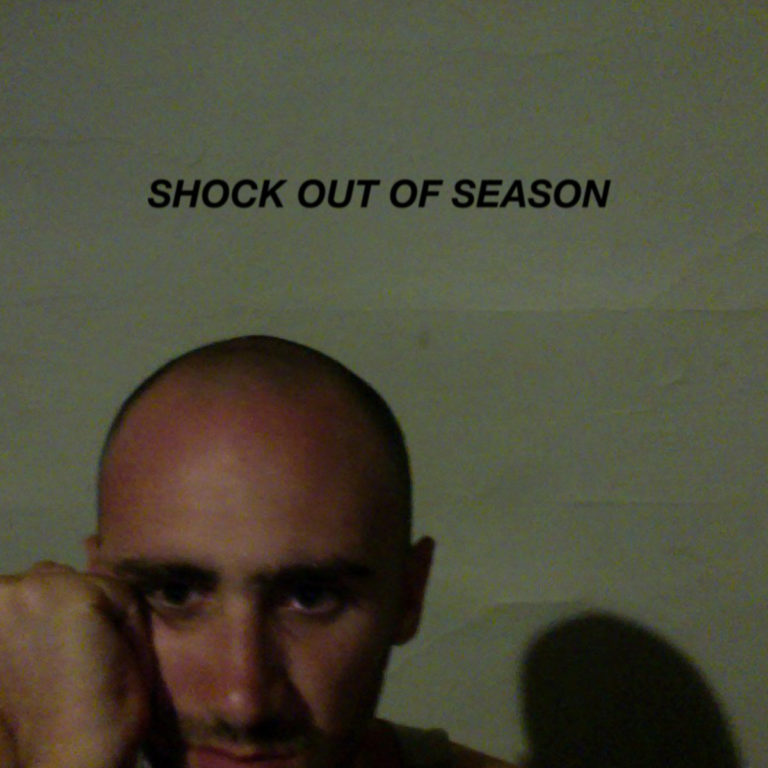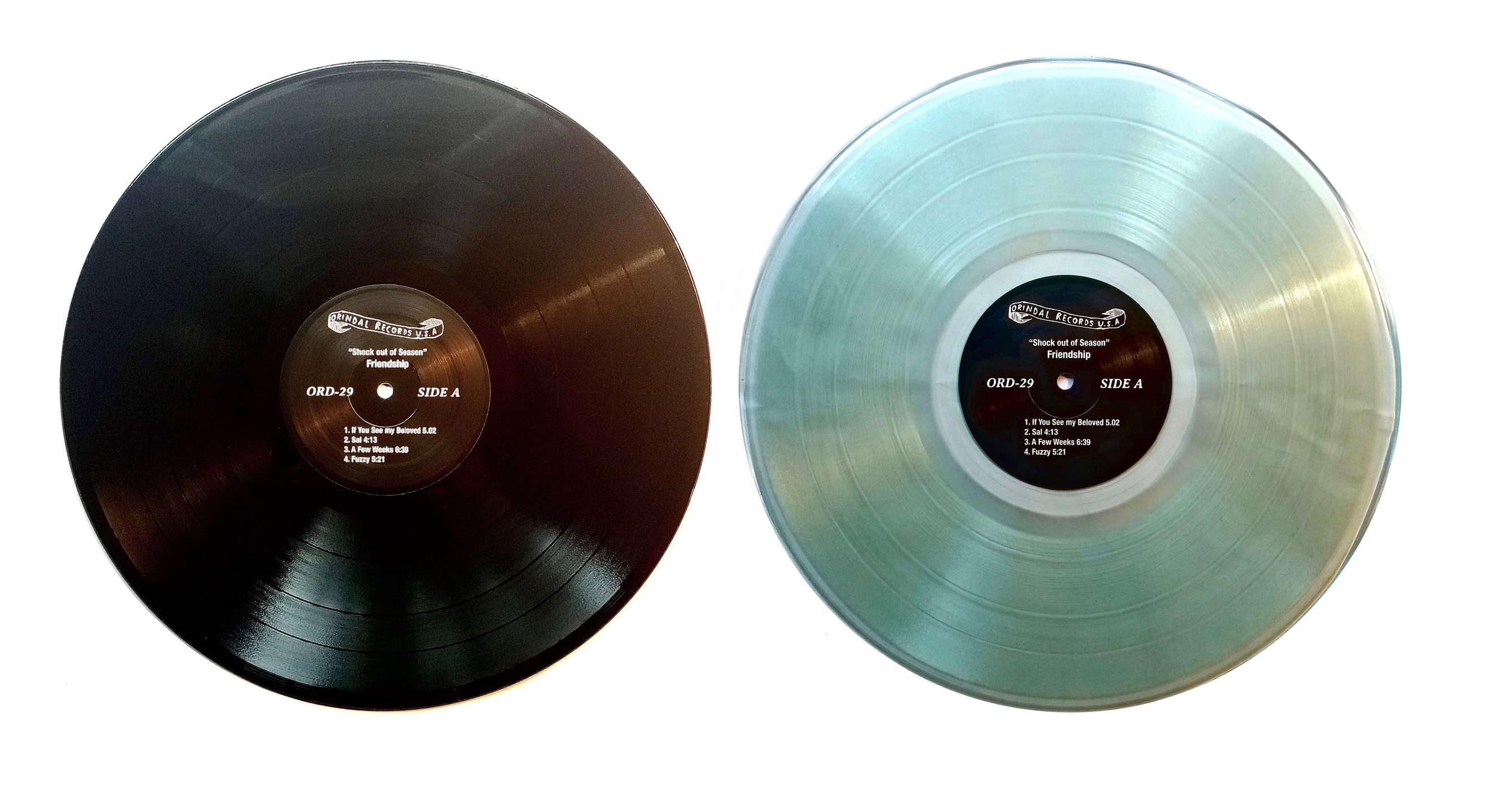In George Saunders’ debut novel, Lincoln in the Bardo, the majority of the action takes place in a state of existence between life and whatever comes next. The space is laid over our own, the spirits that inhabit it able to see the real world and pass across it, but unable to successfully interact with anything tangible, or communicate with anyone living. The result is a frustrating and confusing isolation, where words can be voiced but not heard, gestured made but never quite received. They are, therefore, left as bewildered viewers of the living, incapable of altering their paths and decisions, and wondering when, if ever, something might change.
Shock Out of Season might not be so directly concerned with death and purgatory, but something of the same estrangement informs the latest album from Philadelphia’s Friendship. Currently comprised of Dan Wriggins, Peter Gill, Mike Cormier, Evangeline Krajewski and Jon Samuels, the band combine folk and electronic music, with synthesizer overlaying pedal steel, live drums complimented by programmed drums. Coupled with Wriggins’ conversational, almost stream of consciousness-style delivery, they manage to create a kind of flipped Americana. If classic folk rock is a space in which an artist can align the incongruities of their lives into some pure, cathartic communication on a channel to which everyone is tuned, then Friendship’s version is the sound when the various parts never quite match up, the narrator left to broadcast on his own frequency in the hope that someone might receive his garbled drift.
Indeed, the title, according to an interview with Extreme Nonchalance, is a “bastardization of a line out of the bible,” where a pretty miserable Job apparently declares himself feeling like a shock of corn pulled out of season. Friendship’s version of asynchrony is perhaps not as drastic as the Biblical telling, or Saunders’ interpretation of Buddhism, but is equally important. They explore a kind of subtle alienation from people and places and the requirements of modern life, a sensation that registers as tenuous relationships and a general dissatisfaction—a chronic, gut-level need for something different. Something more.
Despite the superficial sweetness of opener ‘If You See My Beloved’, the love depicted is marked by such dissonance. Which isn’t to question the sincerity of the relationship. The narrator and the other are committed to escaping the tedium of everyday life together, through the creation of moments and memories in snatches of free time. And, in that sense, they are both very much on the same page. However, these shared concerns and aims are not enough to bridge a deeper divide, a distance that isn’t the product of some secret or suppressed truth, rather the physical limitations of us being individual creatures locked away alone in our separate brains. When Wriggins sings “you said you made a connection with Auguste Rodin,” the statement emerges coloured with something like surprise. ‘Huh?’ you imagine him think, wondering why the same was not true of himself. The thought is not returned to, it doesn’t matter which artists the other person likes, but is a reminder nonetheless that they cannot achieve complete congruity. Instead, the narrator is left second guessing, trying to delay his thoughts and opinions until he’s able to judge those of the other, and match his accordingly.
“Everything makes an impression
clouds come on, do their drifty thing
now it’s starting to rain, the only day we both have off
it’s starting to rain
if it don’t bother you, then it don’t bother me”
[bandcamp width=100% height=120 album=4268613877 size=large bgcol=ffffff linkcol=0687f5 tracklist=false artwork=small track=1211164294]
Pushing the conversational tone further, ‘Sal’ plays like a late-night answer phone message, a call never expected to reach it’s recipient but made anyway, a call made just to have your voice committed to tape. However, paradoxically, the lack of a direct listener makes communication easier, as though something in the space of an empty line allows for an unusual frankness. ‘A Few Weeks’ follows with a first kiss being compared to cinematic equivalents, as though the most sensual and memorable experiences are those that closest match what we see on TV. If film’s concept of True Love collapses the space between people, and its idea of life is less ambiguous, then it’s not surprising that we try to stage reproductions, cast ourselves in the lead role of our own existence. Viewed in this way, the chorus sounds like an acknowledgement. “Is that normal for you?” Wriggins asks, trying to determine if such a habit is justifiable, or whether we should be seeking more.
In comparison, ‘Fuzzy’ is dazed and disconcerted, the morning after the filmic night before, while ‘Workhorse’ is the long hard days that follow. “Am I a shock out of season?” Wriggins asks, unable to smoothly ride the cyclical rail of working life. “I’m feeling out of season, am I a workhorse?” While hoping for something magical to break the monotony, the realities of real life make anything so grand seem a little optimistic. “When will I meet my creator,” he asks. “Will I meet my neighbors?”
The slow burn emotion of ‘Sure, But’ plays like an interior monologue delivered in lieu of actual communication (“I called but you couldn’t hear me” he reveals), while ‘Skip to the Good Part’ attempts to make peace by taking stock of the situation (“it’s a hell of a distance between you and me”), as if by acknowledging the things between us might weaken their hold. There’s a desperation present that stands out from the rest of the album, incredulous that you can feel so in love yet be unable to communicate it, as though your very body should be flashing with the feeling.
If closer ‘Moment of Discovery’ is Friendship’s epiphany then, it’s not a solution to the problem but rather an acknowledgement of it, facing up to the truth of human relationships and the loneliness they entail. Which means a conscious attempt to stop trying to recreate the impossible recreations, the Hollywood simulacra of love and intimacy we drive ourselves crazy chasing. Whether this is possible after years of conditioning and dreaming, and whether it would provide complete satisfaction and happiness anyway, remains unclear, though there is surely some value in the very process of asking questions, of refusing to relax back into the isolation we’ve come to know.
“Little moment of discovery
shine a light on me
don’t let apathy
keep me busy”
[bandcamp width=100% height=120 album=4268613877 size=large bgcol=ffffff linkcol=0687f5 tracklist=false artwork=small track=2377137894]
In many ways, Friendship are in a Bardo of their own, caught between how life has been and could be, unsure how and when, if ever, they might pass into the next part. Shock Out of Season is concerned with finding this exit, figuring out some act or combination of words that allow passage into the next life. Or maybe it’s about making peace with the current space, acknowledging that perhaps true communication is impossible, and that trying to live with this understanding might be the most sympathetic and empathetic path available to us.
Shock out of Season is out on the 3rd November via Orindal Records and is available now from Bandcamp, including black and Coke-bottle clear vinyl editions. Orindal have put out some great records in recent years, some of which you can read about here.


